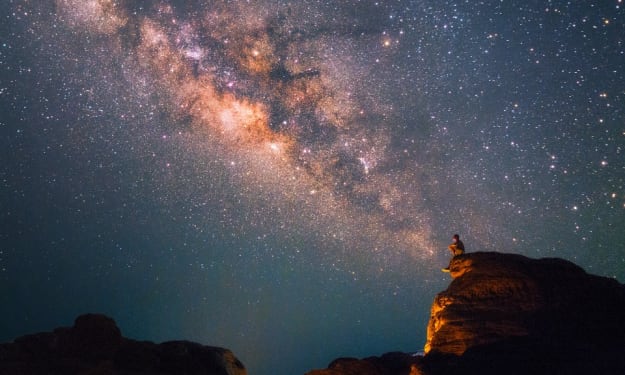Imagine a scenario in which the Sun Detonated Tomorrow
Nature

Imagine a scenario in which the Sun Detonated Tomorrow.
The Sun, our planetary group's focal star, is a fundamental wellspring of intensity, energy, and life. In any case, consider the possibility that it was to detonate unexpectedly. How about we investigate this situation and its expected outcomes?
Despite its period of around 10 billion years, the Sun is supposed to endure just another 5 billion years. Ultimately, it will venture into a red monster before contracting into a white midget, slowly cooling more than billions of years. Notwithstanding, assuming the Sun were to detonate abruptly, the repercussions would be horrendous.
First and foremost, seeing a cosmic explosion, the blast of a star, from Earth would be implausible because of the Sun's distance of 150 million kilometers and the deferral of 8 minutes for light to contact us. Luckily, we should be no less than 50 to 100 light-years away for Earth to be protected from a cosmic explosion.
In case of a sun-lightyears-powered blast, the subsequent shockwave wouldn't demolish the whole planet. Be that as it may, the side pointing toward the Sun would confront quick decimation, with bubbling temperatures. Alternately, the contrary side would dive into super durable murkiness, encountering outrageous viruses.
Without the Sun's gravitational draw, Earth's circle would be undermined, possibly sending it floating into space. While the chance exists of Earth circling one more star for endurance, this change would happen long after humankind's eradication.
In a speculative situation where we know the Sun's downfall ahead of time, mankind could plan for endurance. Underground dugouts could support life temporarily, using Earth's steady underground temperatures.
As the Sun's downfall unfurls more than billions of years, Earth's destiny turns out to be progressively dreary. Surface temperatures would fall, seas would freeze, and the air would implode. At last, the planet would become appalling, uncovering any excess life to vast radiation and meteor influences.
Nonetheless, the Sun's blast wouldn't happen abruptly. Its end will be a sluggish cycle of more than billions of years, permitting adequate time for transformation or movement to other tenable areas.
While imagining a future without the Sun is overwhelming, it likewise offers a brief look into the huge conceivable outcomes of the universe. Who can say for sure what new types of life or civic establishments could arise in the far-off future? While the Sun's blast denotes the conclusion of a significant period, it additionally proclaims the potential for fresh starts somewhere else in the universe.
Investigating the theoretical situation of the Sun detonating in the past is a fascinating idea that welcomes hypotheses about the possible outcomes and suggestions for our planetary group and then some.
Assuming we engage the possibility that the Sun detonated in the far-off past, a few speculative results could emerge:
1. Existence of Relics: Assuming that the Sun had detonated in the far-off past, reminders of this destructive occasion could be perceptible today. These leftovers could incorporate flotsam and jetsam mists, shockwaves, or strange heavenly peculiarities that astrophysicists could study to figure out the occasion's tendency and impacts.
2. Extinction Events: The blast of the Sun would probably bring about boundless annihilation across the planetary group. The extraordinary radiation, heat, and shockwaves would annihilate all life structures on neighboring planets, including Earth. Such an occasion might have caused mass terminations, reshaping the course of advancement and the historical backdrop of life on The planet.
3. Solar Framework Alterations: The blast would upset the circles of planets, moons, and space rocks inside the planetary group. Planetary climates would be stripped away, and surface highlights could be changed or obliterated. The elements of the planetary group would be radically different, possibly prompting the discharge of a few heavenly bodies into interstellar space or their catch by different stars.
4. Impact on Habitability: The blast of the Sun would deliver Earth dreadful, with disastrous ramifications for any living things present at that point. The deficiency of the Sun's intensity and light would dive the nearby planet group into obscurity and outrageous cold, making it ungracious for life as far as we might be concerned.
5. Cosmic Significance: A cosmic explosion occasion including the Sun would have critical ramifications for astronomy and cosmology. It would give important experiences into heavenly advancement, the arrangement of components, and the way of behaving of issue under outrageous circumstances. Perceptions of such an occasion could propel how we interpret the universe's key cycles and peculiarities.
In any case, it's fundamental for note that the Sun's blast in the past is absolutely speculative and not upheld by logical proof. The Sun is presently a steady, principal succession star going through atomic combination in its center. While it will ultimately debilitate its fuel and go through tremendous changes, including venture into a red monster and resulting development into a white diminutive person, detonating in a cosmic explosion event isn't normal.
All in all, while envisioning the outcomes of a past blast of the Sun flashes interest and investigation, it stays a captivating however simply speculative situation with no premise in noticed reality.





Comments (1)
Well said, Keep up the good work. https://vocal.media/fiction/the-writer-nobody-sees